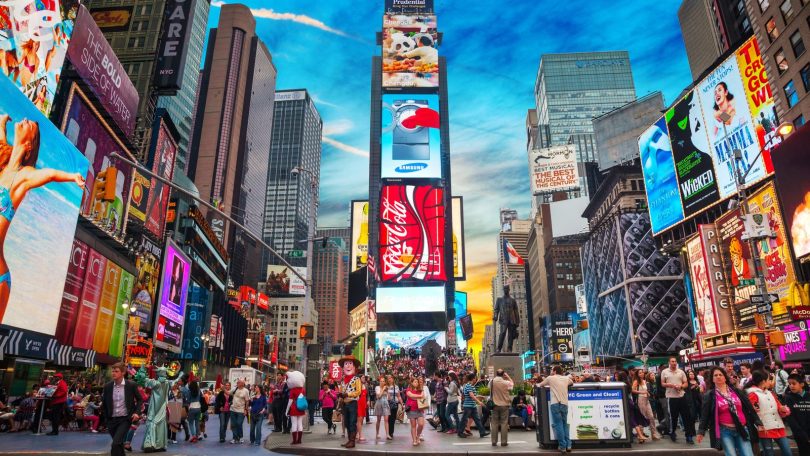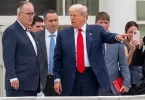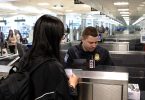The US government has proposed charging some visitors a bond of up to $15,000 to enter the country.
According to a document filed by the State Department and published in the Federal Register on Tuesday, a 12-month pilot programme trialling a bond payment for visa applicants will start on 20 August.
The scheme, in effect for a year, will apply to business and tourist visa applicants from countries deemed to have high overstay rates and “deficient” internal document security controls.
Bonds, which would be refunded as long as the visa terms are complied with, could cost applicants $5,000 (£3,763), $10,000 (£7,527), or $15,000 (£11,286).
They will not apply to countries enrolled in the Visa Waiver Program, such as the UK – and could be waived for others depending on an applicant’s individual circumstances.
A State Department spokesperson told Reuters news agency, however, that the list of countries may be updated “based on high overstay rates, screening and vetting deficiencies, concerns regarding acquisition of citizenship by investment without a residency requirement, and foreign policy considerations”.
In the document, the State Department cited Department of Homeland Security data, which showed that in 2023, there were more than 500,000 “suspected in-country overstays” – where people remained in the US past the end of their visa terms.
The US Travel Association, which represents major tourism-related companies, told Reuters the “scope of the visa bond pilot program appears to be limited, with an estimated 2,000 applicants affected, most likely from only a few countries with relatively low travel volume”.
It added the fee could hinder travel and that “if implemented, the US will have one of, if not the highest, visitor visa fees in the world”.
Read more from Sky News:
Trump hails ‘hottest’ Sydney Sweeney advert
Sean ‘Diddy’ Combs denied bail again ahead of sentencing
A similar pilot scheme was launched in November 2020 at the end of Donald Trump‘s first term in office, but was not fully implemented due to the fall in travel linked to the COVID pandemic.
The latest move comes after the president enacted a travel ban in June, impacting Afghanistan, Myanmar, Chad, the Democratic Republic of the Congo, Equatorial Guinea, Eritrea, Haiti, Iran, Libya, Somalia, Sudan and Yemen.
The White House said some countries had a “significant terrorist presence” and accused others of poor screening for dangerous individuals and not accepting deportees.











